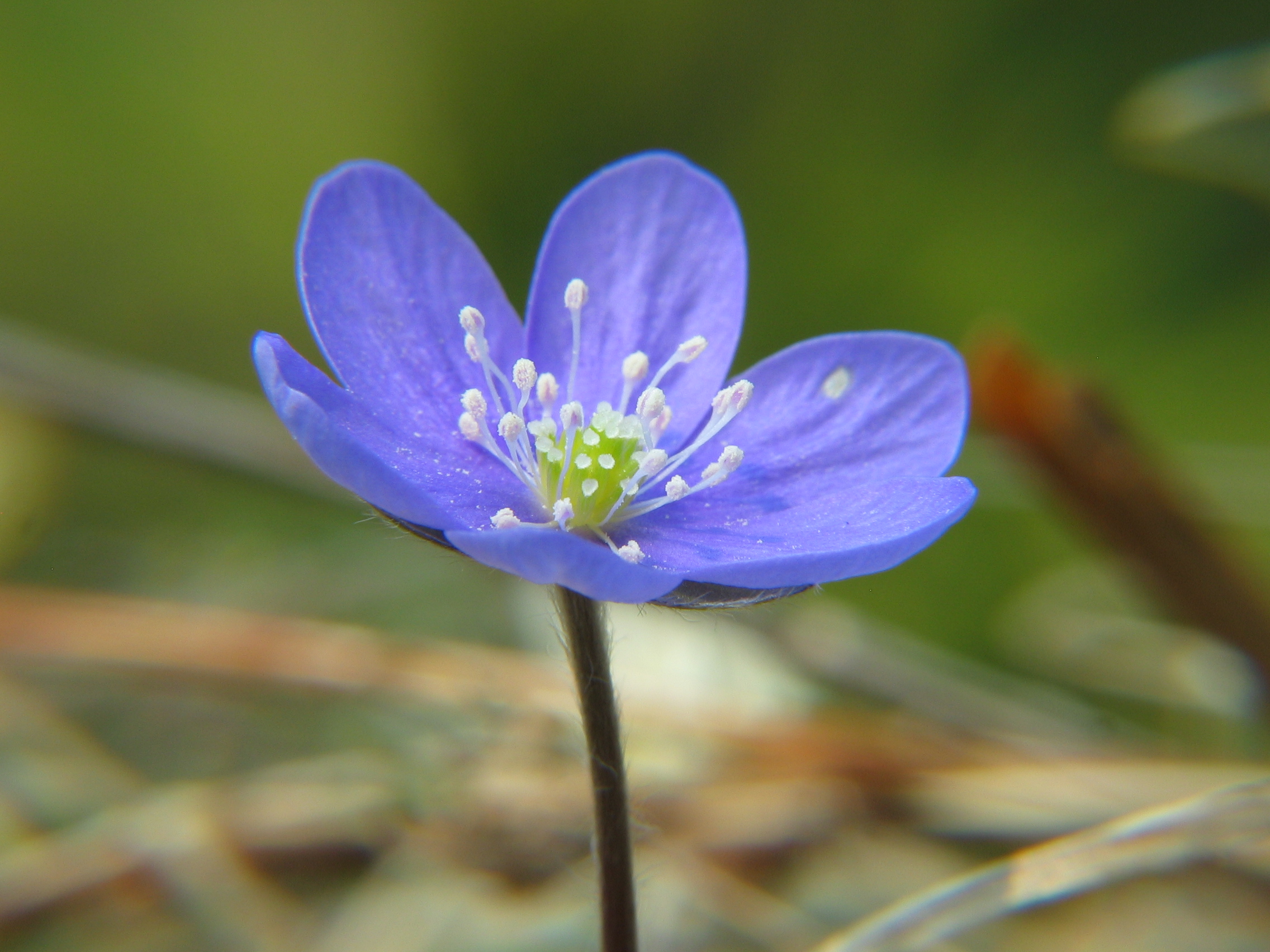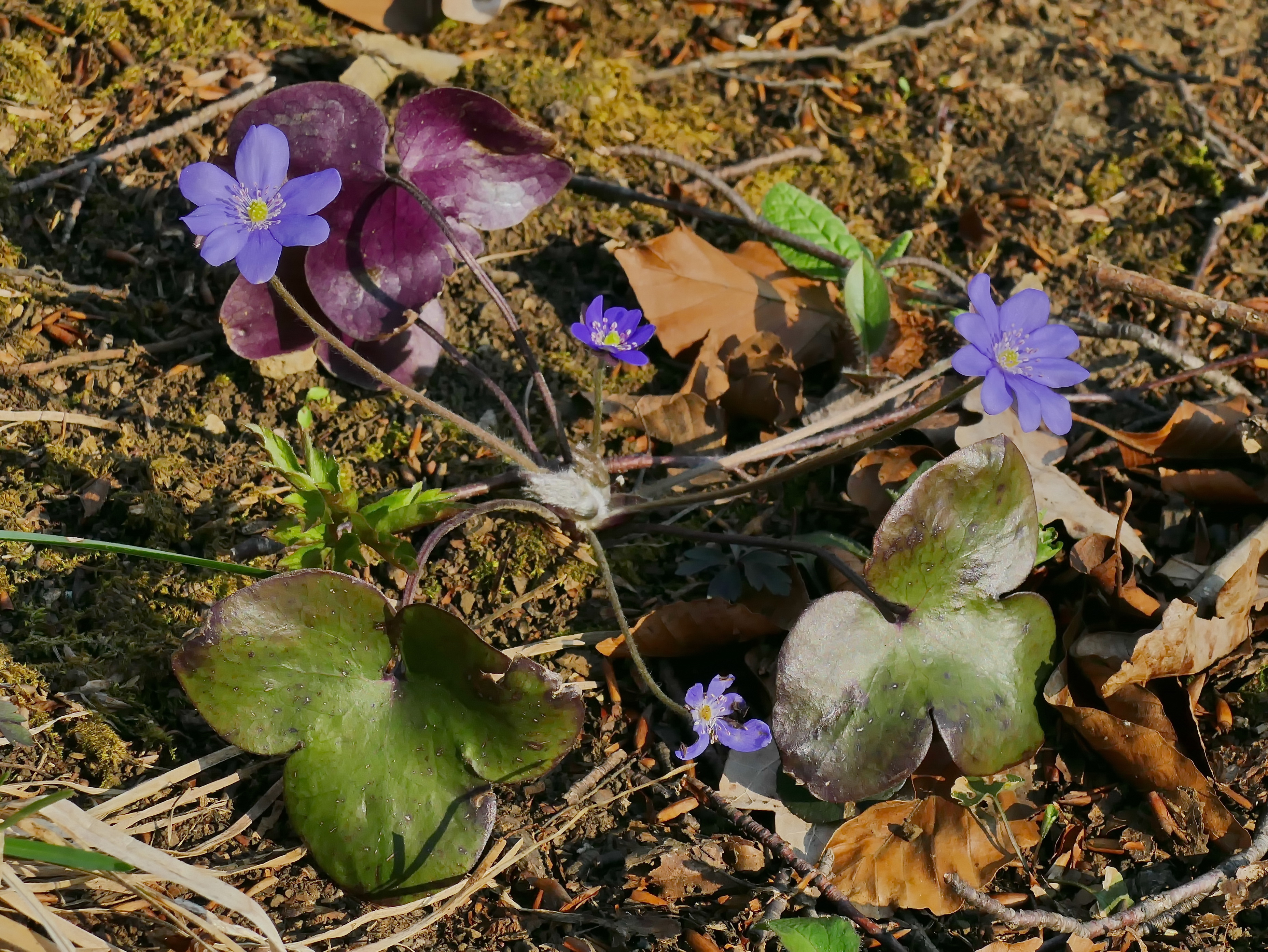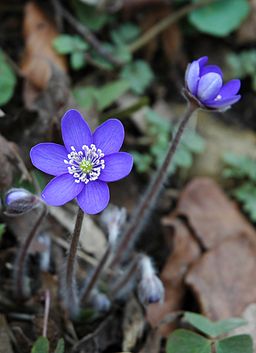Hepatica nobilis var. obtusa – Round-lobe Hepatica
Hepatica nobilis var. obtusa (HEP-a-tic-a no-BIL-iss ob-TOO-suh)
Round-lobe Hepatica
Unassuming, diminutive, but cute and impactful, Round-lobe Hepatica is a plant that can be hard to appreciate because of its small size. However, planted in the right spot it can serve both an aesthetic and ecological purpose.
A native wildflower found east of the Mississipi River down to Florida and as far North as Canada, Hepatica nobilis var. obtusa will encourage you to get down to its level to admire the beautiful flower. A great companion among plants such as; Corydalis, Daphne aurantiaca, Erica densifolia, Helleborus, Lathyrus vernus, Omphalodes verna.

Hepatica nobilis var. obtusa flower – Public Domain Image
Origin:
Hepatica – Derived from the Greek hepatikos, pertaining to or affecting the liver, referencing the shape and color of the foliage.
nobilis – Latin for famous.
obtusa – Latin for blunt or rounded, referring to the leaf shape.
Family – Ranunculaceae
Nativity – Eastern North America
Hardiness – USDA Zones 4-7
Form – Small stature, rhizomatous, and clump-forming woodland perennial reaching 6″ tall.
Foliage – This semi-evergreen has long tomentose petioles which bare reniform leaves, referring to the genus name. The 3 rounded lobes are entire.
Flower – Terminal flowers are delicate and lack petals and instead are surrounded by 5-7 conspicuous sepals. Bloom in spring in shades of lavender, blue, pink, and white.
Culture:
Light – Partial Shade
Soil – Acidic soils, coniferous woodland conditions ideal. Humus-rich, moist and well drained.
Propagation – Seed or division. Division advised for unique colored and double-flowered forms.
Problems- Slugs or root fungus with poor draining soil.
Utilization – Woodland or shade garden, shade borders or rock gardens.

Hepatica nobilis var. obtusa flower and foliage
Comments – When propagating through seed, ensure the seed is stored in a moist place as its hydrophilic properties make it unsuitable for dry storage. To germinate, the seed needs a period of warm and moist stratification followed by cold stratification, and back to warm. Ex: 70°-40°-70°



